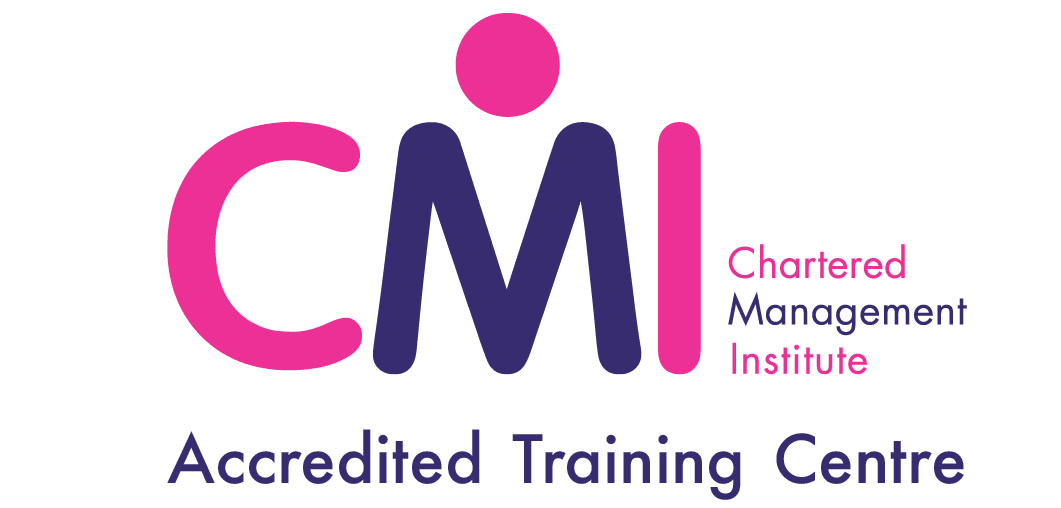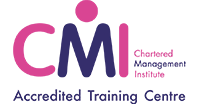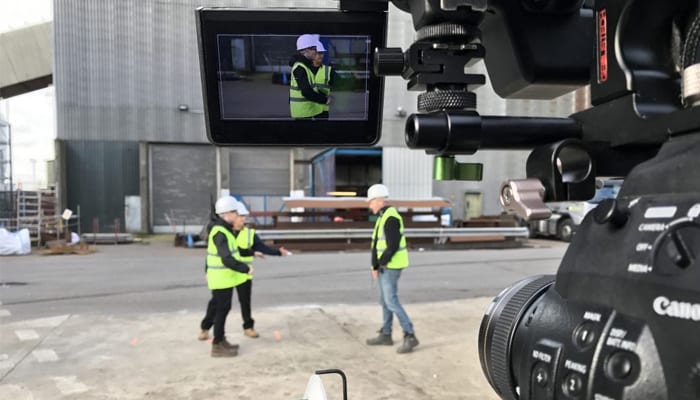
CMI Level 3 Units
These qualifications are aimed at practising or aspiring managers who will supervise or manage a team to achieve clearly defined outcomes. They will set and monitor goals and objectives by providing instruction, direction and guidance. Day to day operational and project activities are a key part of their role..
AWARD
1-2 Units – 1 to 3 months
Providing an overview of the roles and responsibilities required for managers, the Award will develop the skills required for this level of responsibility.
CERTIFICATE
2-3 Units – 3 to 6 months
The Certificate provides a broader knowledge of skills to help you be more effective in specific management areas, with increased focus on the areas that are most appropriate to your role and organisation.
DIPLOMA
5-7 Units – 6 to 12 months
The Diploma gives you a fully comprehensive bank of the skills and knowledge required to be a manager as part of an organisation, as well as the ability to apply your learning in the context of another organisation or industry sector.
Unit 301 - Principles of Management and Leadership
Being equipped with the knowledge, skills and behaviours to manage and lead effectively is essential if an individual and their organisation are to succeed. This unit has been designed for learners who want to develop or sharpen their professional edge and enhance personal effectiveness. The unit focuses on the ways organisations operate. The application of management and leadership approaches and how these can positively impact on own role, lead to improved performance, and support teams, colleagues and customers. The aim of the unit CMI 301 is to introduce the foundations for managers, which will be developed throughout all the level 3 units.
Learning Outcomes:
- Understand how organisations operate
- Understand the management role
- Understand the application of management and leadership approaches
- Understand the knowledge, skills and behaviours to be an effective manager
Unit 303 Managing Individuals to be Effective in their Role
High performing individuals impact on the performance of teams and the organisation. The aim of this unit is to develop the manager’s understanding of how to confidently use their knowledge, skills and abilities to support individuals, not only to perform well, but to exceed expectations.
Learning Outcomes:
- Understand an individual’s work role and responsibilities
- Know how to set objectives with individuals
- Know how to support individuals to perform well
- Know how to assess outcomes against the objectives
- Know how to manage the underperformance of individuals
Unit 305 Building Stakeholder Relationships using Effective Communication
Developing relationships with internal and external stakeholders is an essential management skill. Stakeholders can have a positive or negative impact on the success of an organisation. The aim of this unit is to equip managers to identify and understand stakeholder’s needs, know the purpose and benefits of building relationships with different stakeholder groups, and the methods of communicating with them to achieve results.
Learning Outcomes:
- Know the purpose of building stakeholder relationships
- Understand different channels and types of communication used to build relationships with stakeholders
- Know how to respond to barriers when communicating with stakeholders
- Know how to use stakeholder communication
Unit 307 Developing the Knowledge, Skills and Abilities of Individuals and Teams
A skilled and adaptable workforce is a collective group of people equipped with the knowledge skills and abilities to achieve and exceed objectives. This unit aims to support managers to identify and select innovative development opportunities. It will enable them to identify approaches to support and promote participation, and how to monitor the impact of development activities for individuals, teams and the organisation.
Learning Outcomes:
- Know the purpose of developing the knowledge, skills and abilities of individuals and teams
- Know different types of development opportunities available to support individuals and teams
- Be able to identify and select development opportunities for individuals and teams
- Know how to monitor the impact of learning and development activities on individuals and teams
Unit 309 Responding to Conflict in the Workplace
Conflict and disagreements in the workplace have a detrimental effect on team dynamics, productivity and motivation. The ability to respond effectively to conflict is a fundamental skill for all managers. This unit aims to support managers to understand the types and causes of conflict and how to identify strategies to respond to conflict situations in a timely and professional manner.
Learning Outcomes:
- Understand the nature of conflict in the workplace
- Understand the signs and causes of conflict in the workplace
- Know how to respond professionally to conflict in the workplace
Unit 311 Contributing to the Delivery of a Project
Whilst the scale, significance and complexity of a project will vary, the principles of carrying out a project will ultimately be the same. This unit aims to equip managers with the knowledge, tools, and techniques for managing and monitoring projects. It also identifies approaches to managing risk and responding to the needs and expectations of stakeholders. The skills a manager will learn, will not only enable them to improve own working practice, but will impact on the achievement of project outcomes.
Learning Outcomes:
- Understand the role and purpose of projects in an organisation
- Understand how projects are developed
- Know how to deliver a project
- Know how to monitor progress to ensure successful project delivery
Unit 313 Developing and Sharing Good Practice
Developing and sharing good practice enables individuals and organisations to develop and increase their potential to exceed personal and organisational expectations. This unit explores how good practice can be developed, maintained, adopted and shared with stakeholders.
Learning Outcomes:
- Know the benefits of good practice
- Be able to identify good practice
- Know how to develop good practice
- Understand how good practice can be implemented, maintained and improved
- Know how to share good practice with stakeholders
Unit 315 Principles of Health and Safety in a Work Setting
Health and safety is important as it protects the well-being of employees and customers. There are serious, legal, financial, and reputational consequences if neglected. The aim of this unit is to equip managers with an understanding of their statutory and organisational responsibilities in making the workplace safer.
Learning Outcomes:
- Understand the purpose and benefits of health and safety in the workplace
- Understand legal requirements in relation to health and safety in the workplace
- Understand the risk assessment process
- Know how to respond effectively to a workplace health and safety emergency
Unit 317 Supporting the Delivery of Customer Service
Customers are key to the success of any business. It is essential to know how to deliver a great customer experience that meets and exceeds expectations all customers. This is regardless of whether they are a colleague, department within an organisation, or a member of the public purchasing a product or using a service. The aim of this unit is to equip managers with an understanding of the parameters in which good customer service is delivered. It focuses on the end to end customer journey and encourages the manager to reflect on the customer service experience through the customer’s eyes.
Learning Outcomes:
- Understand the features and benefits of good customer service
- Understand factors that influence customer needs and expectations
- Understand the legal and organisational requirements that influence customer service delivery
- Know how to deliver a good customer experience
- Know how to identify and respond to customer service problems
Unit 319 Managing Meetings
Managers are increasingly faced with days packed full of meetings that leave little time to get things done. Run well, meetings can be a place where issues are discussed, problems resolved, and decisions are made. However, all too often, meetings lack purpose and there is frustration if little has been achieved. The unit content has been designed to challenge traditional thinking. It aims to equip managers with the knowledge and tools to try different approaches when conducting meetings. It also explores good practice for preparing for and leading meetings, which have impact and also delivers results.
Learning Outcomes:
- Understand the purposes and types of meetings
- Understand how to prepare for meetings
- Understand how to facilitate and chair meetings
- Understand how to record and monitor meeting outcomes
Unit 321 Managing Own Personal and Professional Development
In order to meet the demands of an ever changing workplace, individuals need to ensure they continue to update and develop their knowledge and skills. Planning for personal and professional development ensures greater opportunities for success. The purpose of the unit is to support the manager to identify the benefits of engaging in personal and professional development. By using the knowledge gained, a meaningful development plan will be created to support them to become an effective manager in the workplace.
Learning Outcomes:
- Understand the benefits of personal and professional development
- Understand how personal and professional development is informed
- Know how to identify opportunities for personal and professional development
- Know how to create and monitor a personal and professional development plan
Unit 302 - Managing a Team to Achieve Results
The ability to manage teams, which are able to communicate effectively and overcome barriers to achievement, is a critical skill for any manager. High performing cohesive teams are created in an environment where there is a collective understanding of values, goals and objectives. This unit has been developed to support managers in understanding the nature of teams in the workplace, and how these can be managed to achieve results.
Learning Outcomes:
- Understand the knowledge, skills and behaviours to be an effective manager
- Be able to recognise the characteristics of a high performing team
- Know how to lead, communicate with and motivate a high performing team
- Know how to respond to challenges when managing a team proactively
- Know how to manage the performance of a team
Unit 304 Principles of Communication in the Workplace
As the range of communication tools used by a business continues to grow, and new technologies emerge, managers are faced with the challenge of how to select and use different tools to ensure that communication is effective, timely and has impact. The aim of this unit is to equip managers with the knowledge and skills to select and use a range of workplace communication methods. These must be measurable and tailored to the needs of the target audience.
Learning Outcomes:
- Know the channels and types of communication used in the workplace
- Understand the communication cycle
- Be able to plan communication for a target audience
- Know how to measure the effectiveness of communication with a target audience
Unit 306 Principles of Equality, Diversity and Inclusive Working Practice
Treating colleagues, customers and stakeholders with dignity and respect enables relationships to develop and thrive. This unit focuses on how to develop inclusive working practices in line with organisational and legal frameworks. This will not only improve the productivity and well being of staff, but impact positively on the whole customer experience.
Learning Outcomes:
- Know the legal and organisational frameworks for inclusivity, equality and diversity
- Understand equality, diversity and inclusive working practices in own area of responsibility
- Know how to support equality, diversity and inclusive working practices within own area of responsibility
- Understand how to monitor and manage equality, diversity and inclusive working practices within own area of responsibility
- Know how to challenge discrimination in own area of responsibility
Unit 308 Managing Volunteers
Volunteers are uniquely placed to offer a wealth of skills and abilites to compliment those of employed staff within an organisation. Managed well, they can help an organisation improve the quality and capacity of the service. The aim of this unit is to equip managers with the knowledge of how to engage, motivate and support volunteers to be effective within their role and address challenges with a positive ‘can-do’ attitude.
Learning Outcomes:
- Understand the reasons and benefits of volunteering
- Understand the legal and organisational requirements for managing volunteers
- Know how to recruit, select and manage learning and development for volunteers
- Know how to manage volunteers in the workplace
- Know how to build and maintain relationships with volunteers
- Know how to motivate and retain volunteers
Unit 310 Supporting Teams and Individuals Through Change
Change is inevitable if an organisation is to maintain competitiveness and currency of practice. Managers are constantly asked to implement change to respond to commercial pressures, legal or organisational requirements, efficiencies or improvements. Success often depends on the support given by managers to staff. The aim of this unit is to enable managers to lead people positively through change. This is achieved by implementing plans which identify ways to make change successful, and gaining the support and trust of individuals and teams.
Learning Outcomes:
- Understand change within organisations
- Understand how to support individuals and teams through change
- Know how to implement and monitor change
Unit 312 Managing Daily Activities to Achieve Results
Working efficiently is essential if a business is to remain competitive. A well structured workload is key to individual and team success. The aims of the unit are to equip managers with the knowledge to identify priorities and set measurable objectives. Managers will know how to organise and allocate daily work activities, monitor outcomes, and respond practically to problems in a manner which supports the achievement of results.
Learning Outcomes:
- Understand the purpose of daily work activities in the context of an organisation
- Understand how to prioritise and set objectives for daily work activities
- Know how to organise and allocate work
- Understand how to monitor outcomes and respond to problems
Unit 314 Managing Budgets and Resources
Budgets and resources are crucial to the functioning of any organisation. Organisations need to plan and manage money and resources to remain operational. The aim of this unit is to equip managers with the knowledge that they need to manage budgets and other resources. This allows them to remain efficient and effective.
Learning Outcomes:
- Understand the importance of managing resources in own area of responsibility
- Understand the use of budgets in an organisation
- Understand how to manage costs within a budget
- Know how to monitor and control a budget in own area of responsibility
Unit 316 Monitoring Quality to Improve Outcomes
The name of organisations who have built their reputation on the quality of their products or services readily come to mind. Managing quality is a collective activity, which has to monitored continually to ensure standards are consistently met. The aim of this unit is to equip managers with the understanding of how quality systems are used, the tools and techniques for monitoring and measuring quality, and the requirements needed to support a quality audit. The impact of this knowledge is to drive a culture of continuous improvement within the organisation.
Learning Outcomes:
- Understand the purpose of monitoring quality in the organisational context
- Understand the use of quality systems and tools and techniques for monitoring outcomes
- Know how to monitor quality and report on outcomes
Unit 318 Managing Data and Information
The ability to solve problems, make timely business decisions and respond to customers needs is all dependent on the ability to access good quality data and information. With growing volumes of data, this challenge has become increasingly difficult to manage. The aim of this unit is to equip managers with the knowledge of how to gather, assess and analyse different types of data and information, and how to report findings for different business purposes within legal and organisational guidelines.
Learning Outcomes:
- Understand the reasons for collecting data and information
- Know the types and use of data and information used by organisations
- Know how to manage data and information
- Know how to interpret data and information and communicate findings
Unit 320 Presenting for Success
Delivering presentations can be very challenging. When done successfully, a presentation can lead to a job offer or a new contract. It also has the potential to engage team members to buy-into new ideas, or embrace new projects and opportunities. The aim of this unit is to equip managers with the knowledge and skills to plan presentations to meet the needs of a target audience. The unit will enable managers to develop the knowledge and tools to deliver great presentations, which engage an audience and motive them to want to know more.
Learning Outcomes:
- Know the purpose of presentations and the methods used to meet the needs of a target audience
- Understand what is required to be a successful presenter
- Understand how to plan, deliver and review presentations
- Be able to plan and deliver a presentation to a target audience
- Be able to reflect on the outcomes of the delivery of a presentation
AWARD
1-2 Units – 1 to 3 months
Providing an overview of the roles and responsibilities required for managers, the Award will develop the skills required for this level of responsibility.
CERTIFICATE
2-3 Units – 3 to 6 months
The Certificate provides a broader knowledge of skills to help you be more effective in specific management areas, with increased focus on the areas that are most appropriate to your role and organisation.
DIPLOMA
5-7 Units – 6 to 12 months
The Diploma gives you a fully comprehensive bank of the skills and knowledge required to be a manager as part of an organisation, as well as the ability to apply your learning in the context of another organisation or industry sector.
Unit 301 - Principles of Management and Leadership
Being equipped with the knowledge, skills and behaviours to manage and lead effectively is essential if an individual and their organisation are to succeed. This unit has been designed for learners who want to develop or sharpen their professional edge and enhance personal effectiveness. The unit focuses on the ways organisations operate. The application of management and leadership approaches and how these can positively impact on own role, lead to improved performance, and support teams, colleagues and customers. The aim of the unit CMI 301 is to introduce the foundations for managers, which will be developed throughout all the level 3 units.
Learning Outcomes:
- Understand how organisations operate
- Understand the management role
- Understand the application of management and leadership approaches
- Understand the knowledge, skills and behaviours to be an effective manager
Unit 302 - Managing a Team to Achieve Results
The ability to manage teams, which are able to communicate effectively and overcome barriers to achievement, is a critical skill for any manager. High performing cohesive teams are created in an environment where there is a collective understanding of values, goals and objectives. This unit has been developed to support managers in understanding the nature of teams in the workplace, and how these can be managed to achieve results.
Learning Outcomes:
- Understand the knowledge, skills and behaviours to be an effective manager
- Be able to recognise the characteristics of a high performing team
- Know how to lead, communicate with and motivate a high performing team
- Know how to respond to challenges when managing a team proactively
- Know how to manage the performance of a team
Unit 303 Managing Individuals to be Effective in their Role
High performing individuals impact on the performance of teams and the organisation. The aim of this unit is to develop the manager’s understanding of how to confidently use their knowledge, skills and abilities to support individuals, not only to perform well, but to exceed expectations.
Learning Outcomes:
- Understand an individual’s work role and responsibilities
- Know how to set objectives with individuals
- Know how to support individuals to perform well
- Know how to assess outcomes against the objectives
- Know how to manage the underperformance of individuals
Unit 304 Principles of Communication in the Workplace
As the range of communication tools used by a business continues to grow, and new technologies emerge, managers are faced with the challenge of how to select and use different tools to ensure that communication is effective, timely and has impact. The aim of this unit is to equip managers with the knowledge and skills to select and use a range of workplace communication methods. These must be measurable and tailored to the needs of the target audience.
Learning Outcomes:
- Know the channels and types of communication used in the workplace
- Understand the communication cycle
- Be able to plan communication for a target audience
- Know how to measure the effectiveness of communication with a target audience
Unit 305 Building Stakeholder Relationships using Effective Communication
Developing relationships with internal and external stakeholders is an essential management skill. Stakeholders can have a positive or negative impact on the success of an organisation. The aim of this unit is to equip managers to identify and understand stakeholder’s needs, know the purpose and benefits of building relationships with different stakeholder groups, and the methods of communicating with them to achieve results.
Learning Outcomes:
- Know the purpose of building stakeholder relationships
- Understand different channels and types of communication used to build relationships with stakeholders
- Know how to respond to barriers when communicating with stakeholders
- Know how to use stakeholder communication
Unit 306 Principles of Equality, Diversity and Inclusive Working Practice
Treating colleagues, customers and stakeholders with dignity and respect enables relationships to develop and thrive. This unit focuses on how to develop inclusive working practices in line with organisational and legal frameworks. This will not only improve the productivity and well being of staff, but impact positively on the whole customer experience.
Learning Outcomes:
- Know the legal and organisational frameworks for inclusivity, equality and diversity
- Understand equality, diversity and inclusive working practices in own area of responsibility
- Know how to support equality, diversity and inclusive working practices within own area of responsibility
- Understand how to monitor and manage equality, diversity and inclusive working practices within own area of responsibility
- Know how to challenge discrimination in own area of responsibility
Unit 307 Developing the Knowledge, Skills and Abilities of Individuals and Teams
A skilled and adaptable workforce is a collective group of people equipped with the knowledge skills and abilities to achieve and exceed objectives. This unit aims to support managers to identify and select innovative development opportunities. It will enable them to identify approaches to support and promote participation, and how to monitor the impact of development activities for individuals, teams and the organisation.
Learning Outcomes:
- Know the purpose of developing the knowledge, skills and abilities of individuals and teams
- Know different types of development opportunities available to support individuals and teams
- Be able to identify and select development opportunities for individuals and teams
- Know how to monitor the impact of learning and development activities on individuals and teams
Unit 308 Managing Volunteers
Volunteers are uniquely placed to offer a wealth of skills and abilites to compliment those of employed staff within an organisation. Managed well, they can help an organisation improve the quality and capacity of the service. The aim of this unit is to equip managers with the knowledge of how to engage, motivate and support volunteers to be effective within their role and address challenges with a positive ‘can-do’ attitude.
Learning Outcomes:
- Understand the reasons and benefits of volunteering
- Understand the legal and organisational requirements for managing volunteers
- Know how to recruit, select and manage learning and development for volunteers
- Know how to manage volunteers in the workplace
- Know how to build and maintain relationships with volunteers
- Know how to motivate and retain volunteers
Unit 309 Responding to Conflict in the Workplace
Conflict and disagreements in the workplace have a detrimental effect on team dynamics, productivity and motivation. The ability to respond effectively to conflict is a fundamental skill for all managers. This unit aims to support managers to understand the types and causes of conflict and how to identify strategies to respond to conflict situations in a timely and professional manner.
Learning Outcomes:
- Understand the nature of conflict in the workplace
- Understand the signs and causes of conflict in the workplace
- Know how to respond professionally to conflict in the workplace
Unit 310 Supporting Teams and Individuals Through Change
Change is inevitable if an organisation is to maintain competitiveness and currency of practice. Managers are constantly asked to implement change to respond to commercial pressures, legal or organisational requirements, efficiencies or improvements. Success often depends on the support given by managers to staff. The aim of this unit is to enable managers to lead people positively through change. This is achieved by implementing plans which identify ways to make change successful, and gaining the support and trust of individuals and teams.
Learning Outcomes:
- Understand change within organisations
- Understand how to support individuals and teams through change
- Know how to implement and monitor change
Unit 311 Contributing to the Delivery of a Project
Whilst the scale, significance and complexity of a project will vary, the principles of carrying out a project will ultimately be the same. This unit aims to equip managers with the knowledge, tools, and techniques for managing and monitoring projects. It also identifies approaches to managing risk and responding to the needs and expectations of stakeholders. The skills a manager will learn, will not only enable them to improve own working practice, but will impact on the achievement of project outcomes.
Learning Outcomes:
- Understand the role and purpose of projects in an organisation
- Understand how projects are developed
- Know how to deliver a project
- Know how to monitor progress to ensure successful project delivery
Unit 312 Managing Daily Activities to Achieve Results
Working efficiently is essential if a business is to remain competitive. A well structured workload is key to individual and team success. The aims of the unit are to equip managers with the knowledge to identify priorities and set measurable objectives. Managers will know how to organise and allocate daily work activities, monitor outcomes, and respond practically to problems in a manner which supports the achievement of results.
Learning Outcomes:
- Understand the purpose of daily work activities in the context of an organisation
- Understand how to prioritise and set objectives for daily work activities
- Know how to organise and allocate work
- Understand how to monitor outcomes and respond to problems
Unit 313 Developing and Sharing Good Practice
Developing and sharing good practice enables individuals and organisations to develop and increase their potential to exceed personal and organisational expectations. This unit explores how good practice can be developed, maintained, adopted and shared with stakeholders.
Learning Outcomes:
- Know the benefits of good practice
- Be able to identify good practice
- Know how to develop good practice
- Understand how good practice can be implemented, maintained and improved
- Know how to share good practice with stakeholders
Unit 314 Managing Budgets and Resources
Budgets and resources are crucial to the functioning of any organisation. Organisations need to plan and manage money and resources to remain operational. The aim of this unit is to equip managers with the knowledge that they need to manage budgets and other resources. This allows them to remain efficient and effective.
Learning Outcomes:
- Understand the importance of managing resources in own area of responsibility
- Understand the use of budgets in an organisation
- Understand how to manage costs within a budget
- Know how to monitor and control a budget in own area of responsibility
Unit 315 Principles of Health and Safety in a Work Setting
Health and safety is important as it protects the well-being of employees and customers. There are serious, legal, financial, and reputational consequences if neglected. The aim of this unit is to equip managers with an understanding of their statutory and organisational responsibilities in making the workplace safer.
Learning Outcomes:
- Understand the purpose and benefits of health and safety in the workplace
- Understand legal requirements in relation to health and safety in the workplace
- Understand the risk assessment process
- Know how to respond effectively to a workplace health and safety emergency
Unit 316 Monitoring Quality to Improve Outcomes
The name of organisations who have built their reputation on the quality of their products or services readily come to mind. Managing quality is a collective activity, which has to monitored continually to ensure standards are consistently met. The aim of this unit is to equip managers with the understanding of how quality systems are used, the tools and techniques for monitoring and measuring quality, and the requirements needed to support a quality audit. The impact of this knowledge is to drive a culture of continuous improvement within the organisation.
Learning Outcomes:
- Understand the purpose of monitoring quality in the organisational context
- Understand the use of quality systems and tools and techniques for monitoring outcomes
- Know how to monitor quality and report on outcomes
Unit 317 Supporting the Delivery of Customer Service
Customers are key to the success of any business. It is essential to know how to deliver a great customer experience that meets and exceeds expectations all customers. This is regardless of whether they are a colleague, department within an organisation, or a member of the public purchasing a product or using a service. The aim of this unit is to equip managers with an understanding of the parameters in which good customer service is delivered. It focuses on the end to end customer journey and encourages the manager to reflect on the customer service experience through the customer’s eyes.
Learning Outcomes:
- Understand the features and benefits of good customer service
- Understand factors that influence customer needs and expectations
- Understand the legal and organisational requirements that influence customer service delivery
- Know how to deliver a good customer experience
- Know how to identify and respond to customer service problems
Unit 318 Managing Data and Information
The ability to solve problems, make timely business decisions and respond to customers needs is all dependent on the ability to access good quality data and information. With growing volumes of data, this challenge has become increasingly difficult to manage. The aim of this unit is to equip managers with the knowledge of how to gather, assess and analyse different types of data and information, and how to report findings for different business purposes within legal and organisational guidelines.
Learning Outcomes:
- Understand the reasons for collecting data and information
- Know the types and use of data and information used by organisations
- Know how to manage data and information
- Know how to interpret data and information and communicate findings
Unit 319 Managing Meetings
Managers are increasingly faced with days packed full of meetings that leave little time to get things done. Run well, meetings can be a place where issues are discussed, problems resolved, and decisions are made. However, all too often, meetings lack purpose and there is frustration if little has been achieved. The unit content has been designed to challenge traditional thinking. It aims to equip managers with the knowledge and tools to try different approaches when conducting meetings. It also explores good practice for preparing for and leading meetings, which have impact and also delivers results.
Learning Outcomes:
- Understand the purposes and types of meetings
- Understand how to prepare for meetings
- Understand how to facilitate and chair meetings
- Understand how to record and monitor meeting outcomes
Unit 320 Presenting for Success
Delivering presentations can be very challenging. When done successfully, a presentation can lead to a job offer or a new contract. It also has the potential to engage team members to buy-into new ideas, or embrace new projects and opportunities. The aim of this unit is to equip managers with the knowledge and skills to plan presentations to meet the needs of a target audience. The unit will enable managers to develop the knowledge and tools to deliver great presentations, which engage an audience and motive them to want to know more.
Learning Outcomes:
- Know the purpose of presentations and the methods used to meet the needs of a target audience
- Understand what is required to be a successful presenter
- Understand how to plan, deliver and review presentations
- Be able to plan and deliver a presentation to a target audience
- Be able to reflect on the outcomes of the delivery of a presentation
Unit 321 Managing Own Personal and Professional Development
In order to meet the demands of an ever changing workplace, individuals need to ensure they continue to update and develop their knowledge and skills. Planning for personal and professional development ensures greater opportunities for success. The purpose of the unit is to support the manager to identify the benefits of engaging in personal and professional development. By using the knowledge gained, a meaningful development plan will be created to support them to become an effective manager in the workplace.
Learning Outcomes:
- Understand the benefits of personal and professional development
- Understand how personal and professional development is informed
- Know how to identify opportunities for personal and professional development
- Know how to create and monitor a personal and professional development plan
We can also help with…
Leadership & Management Training
We’re an accredited training provider for the Chartered Management Institute (CMI) range of courses. We are the only company in the UK to provide a specific Safety Leadership Training course pending accreditation by the CMI.
HSE Documents & Engagement Programmes
This is where it all started for us. For over 20 years we’ve been turning tedious HSE manuals into clear, engaging communications. We can script and check against latest compliance if you’re too busy. Our approach is very different and our initial investment in getting it right for you is refreshingly simple, but incredibly effective.
Behavioural Safety & Safety Leadership
‘Face to Face’ fully immersive integration is at the very heart of our training. Our Award-Winning Training Programmes are proven to change safety behaviours in high-risk industries from oil & petro to waste management, rail and shipping.
Trending Knowledge
more…








